View all filters
Clear
Cathedra of hoe je slagroom maakt
Written in Dutch by Joost Oomen
8 minutes read
De Dageraadlaan: het begin
Translated from
Romanian
to
Dutch
by Jan Willem Bos
Written in Romanian by Andrei Crăciun
10 minutes read
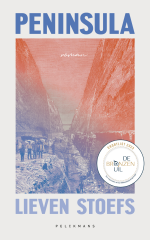
Koridor (Peninsula)
Translated from
Dutch
to
Slovenian
by Lucija Janc Novak
Written in Dutch by Lieven Stoefs
7 minutes read
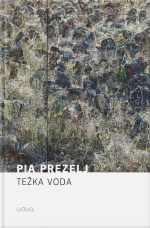
Ciężka woda
Translated from
Slovenian
to
Polish
by Aleksandra Wójcik
Written in Slovenian by Pia Prezelj
8 minutes read
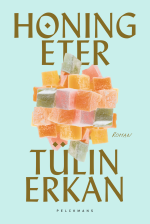
ARRIVALS / GELIȘ (Mangiamiele)
Translated from
Dutch
to
Italian
by Matilde Soliani
Written in Dutch by Tülin Erkan
7 minutes read
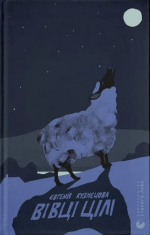
Вівці цілі
Translated from
Ukranian
to
Polish
by Magdalena Ukrainets
Written in Ukranian by Eugenia Kuznetsova
4 minutes read
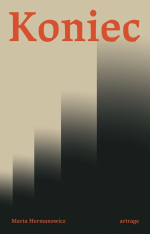
In The End (Koniec)
Metaphysical and blasphemous novel about the tragedy of war that never meets a clean end with a peace treaty. The war goes on, residing within its victims who carry it from one generation to the next.
Malwina, an exceptionally sensitive girl, experiences her grandmother’s wartime memories in her dreams. This makes her exist in two parallel realities at once: the 1940s Eastern borderlands and Siberia along the 1990s Poland. Those realities seep and bleed through one another, making Malwina a catcher of her survivor grandmother’s dreams, or perhaps a dybbuk who gives voice to the dead. To Malwina, the war persists, haunting her day and night alike. Poignant and piercing, Koniec is an impressively well-crafted prose.
Written in Polish by Marta Hermanowicz
10 minutes read

Кінець
Translated from
Polish
to
Ukranian
by Julia Stakhivska
Written in Polish by Marta Hermanowicz
11 minutes read
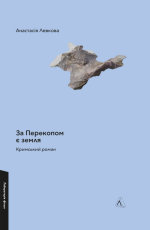
Имало едно време Крим
Translated from
Ukranian
to
Bulgarian
by Dayana Gocova
Written in Ukranian by Anastasia Levkova
8 minutes read
Însemnări pe marginea vieții lui Frances Donnell
Translated from
Spanish
to
Romanian
by Silvia Alexandra Ștefan
Written in Spanish by Adriana Murad Konings
6 minutes read
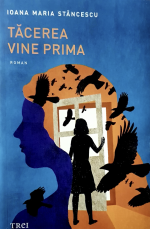
Мълчанието идва първо
Translated from
Romanian
to
Bulgarian
by Valentina Zlateva
Written in Romanian by Ioana Maria Stăncescu
8 minutes read
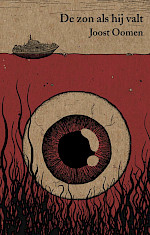
De zon als hij valt
Pols, pols, oog, pols. Een jongen is een jongen en een meisje is een meisje en een jongen. Jij bent een jongen en je moet altijd naar mij toe komen. Elke nacht opnieuw moet jij over het water varen in een half leeggelopen rubberboot en ik moet elke ochtend een vuur ontsteken op het hoogste flatgebouw van mijn stad. Zodat jij iets hebt om op af te varen. Ik ben het meisje dat moet blijven zitten waar ze zit. En jij bent de jongen die de zee probeert leeg te drinken. Allemaal voor de pols, allemaal voor het oog. Soms zijn de dingen in een verhaal belangrijker dan de personages die ze beheersen. "De zon als hij valt" gaat over de reis die een jongen, een meisje, een oog en een pols afleggen om samen te zijn. Uitgangspunt voor deze novelle zijn twee historische objecten: het glazen oog dat overbleef na een drone-aanval op terrorist Mokhtar Belmokhtar en de pols van een vrachtwagenchauffeur die werd teruggevonden na een verder allesverwoestende explosie op camping Los Alfaques in Spanje.
Written in Dutch by Joost Oomen
8 minutes read

El silencio es lo primero
Translated from
Romanian
to
Spanish
by Borja Mozo
Written in Romanian by Ioana Maria Stăncescu
9 minutes read
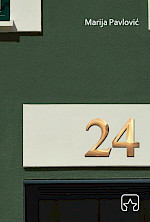
24
Written in Serbian by Marija Pavlović
8 minutes read

ARRIVALS / GELIȘ (Medar)
Translated from
Dutch
to
Slovenian
by Lucija Janc Novak
Written in Dutch by Tülin Erkan
6 minutes read
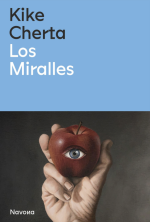
Miraljesovi
Translated from
Spanish
to
Serbian
by Irena Selaković
Written in Spanish by Kike Cherta
8 minutes read

Los confines
Translated from
Polish
to
Spanish
by Teresa Benítez
Written in Polish by Marta Hermanowicz
15 minutes read

Mirallesovi
Translated from
Spanish
to
Slovenian
by Mojca Petaros
Written in Spanish by Kike Cherta
7 minutes read
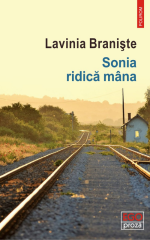
Sonia steekt haar hand op
Translated from
Romanian
to
Dutch
by Charlotte van Rooden
Written in Romanian by Lavinia Braniște
7 minutes read
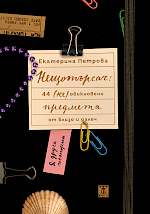
Dingenzoeker: 44 (on)gewone objecten van dichtbij en veraf
Verhalen over verrassende vondsten uit de hele wereld: laarzen uit Bhutan, stoeptegels uit Barcelona naar ontwerp van Gaudí, wijnglazen uit Baskenland, een broche uit Sarajevo, espadrilles uit de Pyreneeën, scarabeeën uit het oude Egypte, een doos met afval uit New York, een kaart van Oost-Berlijn, en nog veel meer. Ekaterina Petrova vertelt over de plaatsen waar ze vandaan komen en geeft ze een bredere culturele, historische en antropologische context. Haar persoonlijke ervaringen als reiziger, vertaler en non-fictieschrijver klinken er steevast in door. De vormgeving, door een van Bulgarijes opmerkelijkste hedendaagse illustratoren, geeft op prachtige en humoristische wijze de sfeer van de teksten weer. Een boek om te lezen en te herlezen, om te hebben en om weg te geven.
Translated from
Bulgarian
to
Dutch
by Justin Van Heddegem
Written in Bulgarian by Ekaterina Petrova
9 minutes read